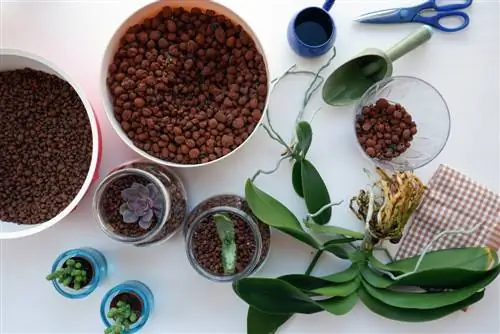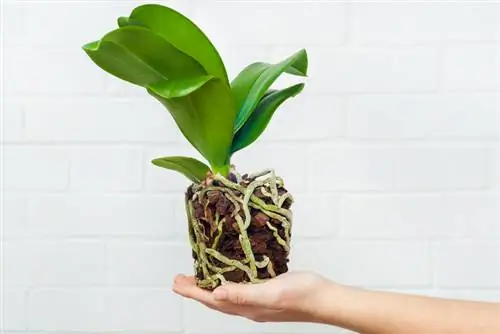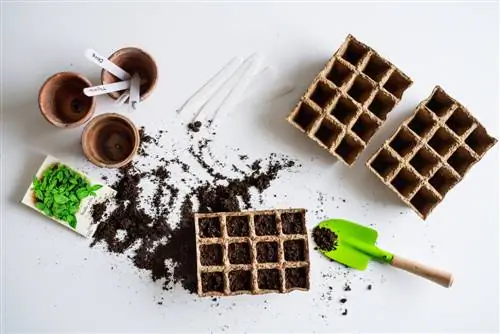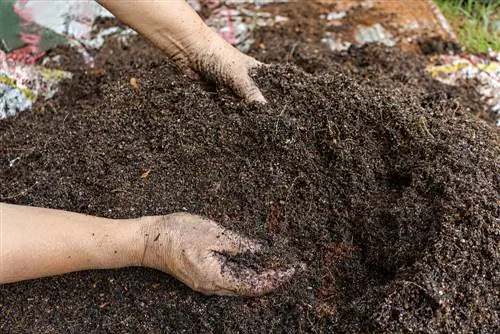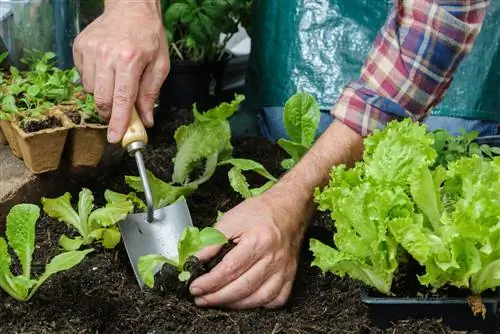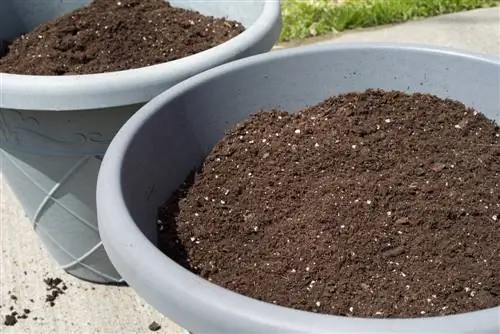- Author admin leonars@hobbygardeners.com.
- Public 2023-12-16 16:46.
- Last modified 2025-06-01 06:02.
Conventional potting soil has been criticized as an ideal breeding ground for pests, mold and fungal spores. Good reasons to look for sensible alternatives. Find out here about a first-class alternative to potting soil for the benefit of your bed, balcony and house plants.
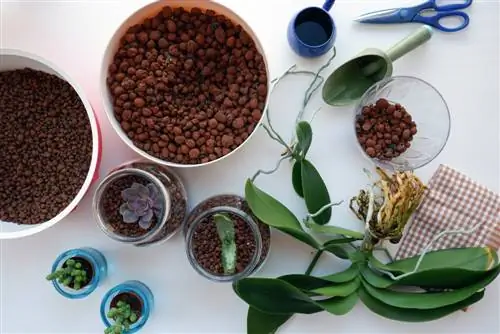
What is a good alternative to potting soil for potted plants?
An excellent alternative to traditional potting soil is Seramis Plant Granules, an inorganic clay granulate that is suitable for all potted plants and offers benefits such as excellent nutrient and water retention, mold resistance and reusability.
What alternative to potting soil is there?
The best alternative to potting soil isSeramis plant granules made from fired clay balls. In contrast to organic potting soil, inorganic clay granules, also known as expanded clay, are convincing as a substrate for houseplants with these advantages:
Excellent nutrient and water storage
Doesn't mold.
- No infestation by pests typical of potting soil, such as fungus gnat larvae or root mites.
- Roots cannot rot in the airy, porous granules.
- Reusable.
Clay granules - disadvantages
Using clay granules as an alternative to potting soil has an important disadvantage. Awatering indicator is required for the water supply so that the potted plants do not dry out or become waterlogged.
For which plants is the alternative to potting soil suitable?
Clay granules are suitable as an alternative to potting soil forall potted plants. Matched to the plant species, the granules differ in terms ofgrainandcomposition. Market leader Seramis has these clay granulate substrates in its range:
- Plant granules for houseplants with extra potassium.
- Special substrate for orchids made from pieces of bark and raw clay.
- Special substrate for herbs and succulents made from raw clay, lava and expanded clay, pH value 6, 7.
- Plant granules for beds, balconies and pots, pre-fertilized, made from 100 percent raw clay.
- Special substrate for palm trees made from raw clay, lava granules, vermiculite, pH value 6, 5.
- Clay granules for hydroponics in grain sizes 4-8 mm and 8-16 mm.
How do I use the alternative to potting soil correctly?
The easiest way to use clay granules as an alternative to potting soil is when yourepotting a house or container plant. How to do it right:
- The best time is between February and the beginning of April.
- Unpot the plant.
- Shake off old potting soil from the root ball.
- Cut off dead roots.
- Fill the bucket a third full with clay granules.
- Position the plant in the middle of the pot.
- Fill cavities with clay granules.
- Place the watering indicator into the substrate.
- Add liquid fertilizer to the irrigation water and water the plant.
Tip
Coconut soil - potting soil alternative from the rainforest
Coconut soil is on the rise as a popular alternative to potting soil for bed, balcony and house plants. Coconut soil consists of sterilized coconut fibers, is light, productive, compacted and does not mold. Furthermore, coconut fibers can store water and nutrients well and release them back to the root ball in a well-dosed manner. You can either use coconut fiber substrate pure or mix it with potting soil.

